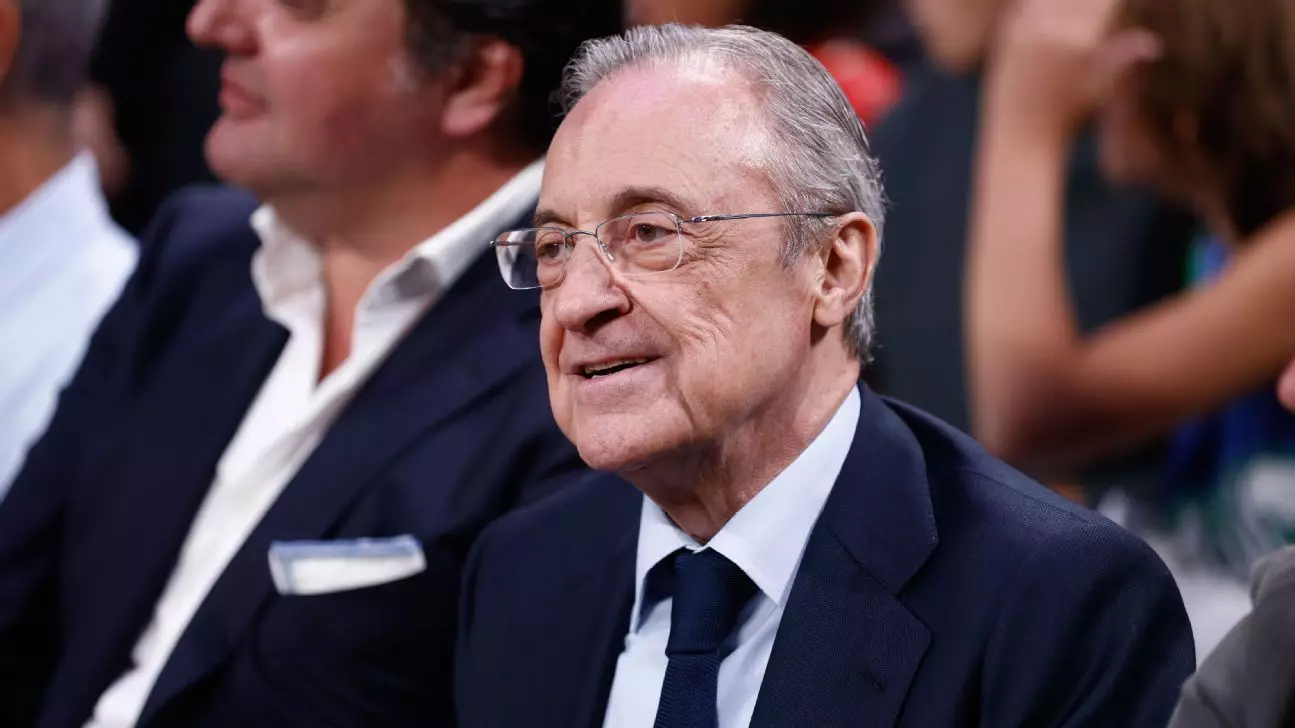In the world of football, individual accolades like the Ballon d’Or can stir up fierce debates and emotions among fans, players, and officials alike. Recently, a significant controversy arose when Florentino Pérez, the president of Real Madrid, voiced his criticism of several journalists from less prominent footballing nations for their voting decisions regarding the 2024 Ballon d’Or. This clash has shone a light on the complexities and biases inherent in the selection process for one of sports’ most prestigious awards.
Pérez’s comments came on the heels of an unexpected result in which Manchester City midfielder Rodri clinched the coveted award over Real Madrid’s Vinícius Júnior, a player celebrated for his pivotal contributions to Madrid’s LaLiga and Champions League triumphs. The Real Madrid president singled out votes from journalists in Namibia, Uganda, Albania, and Finland, implying their unfamiliarity with elite football justified their decisions. This critique suggests a troubling perspective—one that appears to associate a journalist’s geographical origin with their worthiness in evaluating top-tier talent.
In response, Namibian journalist Sheefeni Nikodemus did not shy away from addressing Pérez’s remarks. By expressing his discontent on a prominent Spanish radio show, Nikodemus highlighted the dismissive tone towards journalists from lesser-known footballing nations, stating that such attitudes reveal Pérez’s feelings of superiority based on one’s nationality. The dialogue raises significant questions: Should geographical diversity within sports journalism be seen as a strength or a weakness? Can expertise come from anywhere, regardless of a country’s global football standing?
The process by which the Ballon d’Or winner is determined has its own set of complexities. A panel of 100 international journalists ranks the top ten players based on their performances over the year, with points awarded according to their placements. This year, Rodri emerged victorious with 1,170 points, narrowly surpassing Vinícius, who garnered 1,129 points. While Vinícius’s accomplishments cannot be overlooked, including his key role in Madrid’s domestic and European success, the data from the vote illustrates a critical perspective: not all voters recognized his impact as equal to that of Rodri.
The subjective nature of such rankings begs the question of accountability. Should voters justify their rankings to avoid backlash from powerful football figures? This quandary extends beyond the Ballon d’Or to encompass various awards and recognition systems in sports, where opinions vary significantly. The sports community must consider whether this criticism stifles honest opinions or fosters a more rigorous evaluation of player performance across diverse global contexts.
National identity plays a significant role in the perception of journalists and their evaluations within the football world. Pérez’s underlying argument, whether intentional or not, perpetuates a hierarchy where countries with more prominent footballing histories assume precedence in shaping narratives around players. This poses a troubling challenge: should reports from those with non-traditional football histories be overlooked? While it is reasonable to associate greater footballing success with enhanced insight, such reasoning risks alienating valid perspectives that arise from unique cultural frameworks.
By engaging with the sentiments of Nikodemus and others in similar positions, the discourse around the Ballon d’Or and its voting process may evolve. Authenticity in journalism thrives on a multitude of viewpoints, and sports journalism gains depth through the contribution of diverse voices.
In light of these events, it may be time to revisit how awards like the Ballon d’Or are organized and the broader implications of their voting processes. The validation of votes from diverse nations should be embraced as a tapestry adding texture to the overall narrative of football, rather than dismissed as irrelevant. Advocating for equal representation across all voting entities can help dismantle the elitist approach and foster an environment where every opinion is valued.
While disappointment over individual award outcomes will always exist in sports, it is vital for the discussion surrounding them to include varied perspectives. In doing so, we can honor the sport’s global nature and allow for the evolution of its recognition systems—creating a more inclusive and representative framework for evaluating athletes. The case involving Vinícius Júnior and the Ballon d’Or serves as an invitation for dialogue and reform, ushering in a new era where all journalists, regardless of their origin, have a respected place at the table.

